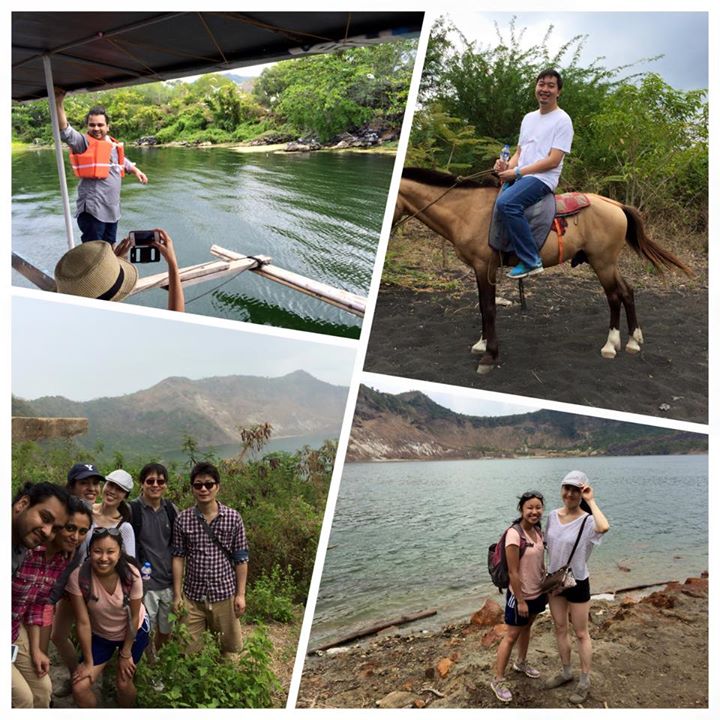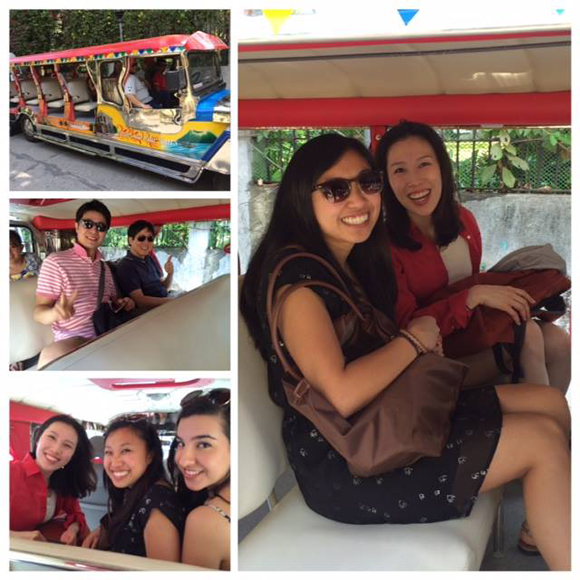Asian Institute of Management Philippines
The W. SyCip Graduate School of Business and the Dr. Andrew L. Tan Center for Tourism of the Asian Institute of Management (AIM) is holding a weeklong Sustainable Tourism Management course for students of the Global Network for Advanced Management.
The course is comprised of a one-day classroom session at Pico De Loro in Nasugbu, Batangas, a volcano trek and heritage tour at Taal, Batangas, and on-site visits in Anilao, Batangas. The students spent their first day at Pico De Loro, Nasugbu, Batangas. Students from Yale University and Seoul National University participated in the course, all of which are visiting the Philippines for the first time. Students were eager to learn more about what the Philippines has to offer. Today’s program started with an introduction to the course by Mr. Mark Daniel V. Chan, Program Director of the AIM – W. SyCip Graduate School of Business. This weeklong course aims to introduce principles, theories, business models, and case studies in the responsible development and management of tourism destinations.

The classroom session started with a brief overview of the Philippine economy and tourism industry delivered by Dr. John Paolo R. Rivera, Program Manager of the AIM – Dr. Andrew L. Tan Center for Tourism. Students were introduced to the country’s sights and sounds, peculiarities of the Philippine society, performance of the Philippine economy, and the direction of the Philippine tourism industry. Afterwards, Prof. Fernando Y. Roxas, Executive Director of the AIM – Dr. Andrew L. Tan Center for Tourism, provided students with a guiding framework on how sustainable tourism works. According to Prof. Roxas, sustainability is explained by conservation, commercialism, environmental stress, and political interference. Prof. Roxas also emphasized that for sustainable tourism to grow, consultation among stakeholders is important. When stakeholders hold discussions, they can recognize opportunities for integrating tourism with other economic sectors to realize an area's sustainable development.
The students were privileged to have listened to Mr. Jose Ma. Lorenzo Tan, Vice Chairman of the National Advisory Council, World Wildlife Fund Philippines. Mr. Tan discussed the concepts and principles of the limits of acceptable change (LAC). The LAC is built upon eleven principles that have surfaced from research on visitor impacts and growing public interest to be involved in protected area decision-making. Likewise, the concept of carrying capacity was examined. Carrying capacity, as far as tourism destinations are concerned, can be defined as the quantity of tourists that can or should be supported by a destination or the environment. However, Mr. Tan underscored that the carrying capacity paradigm failed because it asked the wrong question, i.e. “how many is too many?” Research has shown that “many problems of recreational use were a function of human behavior rather than the number of visitors.”
The presentation of Mr. Tan was followed by Ms. Mariglo Laririt, Director of Sustainability of El Nido Resorts. Ms. Laririt presented a study in sustainability and resilience particularly the quadruple bottom line strategy that ENR employs to advocate responsible tourism and exercise stewardship over its natural environment. These strategies are: (1) financial growth (generate profits); (2) environmental stewardship (sustainable resort operating practices, environmental education, biodiversity protection, mangrove rehabilitation, environmental research, coastal cleanup, coordination with law enforcement, and buoy maintenance); (3) community engagement (skills training, enhancements, and seminars, organic farm demo, medical missions, outreach programs); and (4) organizational development (hire local, train local, employee training). Ms. Laririt emphasized that the lessons ENR learned from its experiences in being a prime mover of environmental sustainability – “never be complacent about financial profitability, consider investment in environment as normal business expense, and [treat the] community as an important ally and a provider of key resources.”

From today’s discussions, it has been made clear that that Ecotourism is a form of sustainable tourism within a natural and cultural heritage area where community participation, protection and management of natural resources, cultural and indigenous knowledge and practices, environmental education and ethics, as well as economic benefits, are fostered and pursued for the development of host communities and satisfaction of visitors. After the classroom sessions, the students were given the time to explore Pico De Loro, experience Hamilo Coast, and submerge themselves on the cool waters of Nasugbu, Batangas.
This dispatch was written by John Paolo R. Rivera, Program Manager of the Asian Institute of Management's Dr. Andrew L. Tan Center for Tourism, who is traveling with students as part of their Global Network Week experience.
